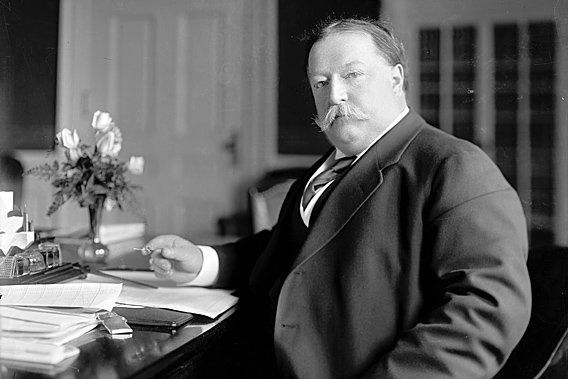Many law students dream of getting a top law firm job. Others dream of becoming a great litigator. Not everyone will succeed. What will make the difference?
It is not that there is not enough legal work out there. It is not that firms are not hiring or that clients are not looking for young, bright lawyers. Still, a lot of young lawyers struggle for several years, trying to get opportunities that suit their talent.
Talent and ability are two different things. Ability is difficult to ignore, while talent alone is difficult to reward. The biggest problem with the legal education is that it does not prepare students to deal with the practical and strategic side of legal work.
Think for a moment. Is your college teaching you how to draft important commercial contracts? Not only some random drafting, but serious contracts involving big stakes that you will be expected to draft when you go for an internship or start a job?
Are you learning how to structure a business, how to incorporate LLPs and companies, how to register trademark or copyright? If a client approaches you to create an anti-piracy strategy, will you be able to help him?
Even if you litigate, why will corporate clients come to you and not someone else? The biggest opportunities for lawyers and law students are no doubt in the commercial practice of law, be it in a law firm or corporate litigation. However, do your years of LLB education really prepare you to take advantage of these opportunities?
The answer is a big NO. The best law schools and colleges can inculcate an ability to think like a lawyer, conduct comprehensive legal research, and write formal documents to a certain extent. This is what interns are usually expected to do. You could exceed expectations, that is a great way to attract the right kind of attention at work place. If you are a junior lawyer, apart from all that you need to deliver results, follow best practices and act of things that you have never been taught about. Even the most brilliant lawyers hence struggle in the first couple of years of their career.
Ask your seniors working in big law firms, they will tell you how they struggled when they first joined a law firm. It was difficult to survive. In fact, not everyone survives. Many leave under pressure, and others get fired.
This is not necessary though. It is not merely the nature of the job that you must struggle to survive. The biggest contributor to this phenomenon is how the law schools don’t prepare you for practical and strategic side of legal work. If you get good and effective training in your formative years, like while you are studying in college or early years of your career even after graduation, a lot of trouble and unnecessary heart ache can be completely avoided. In fact, if you pay attention to certain aspects of your skill development as a lawyer right now, it will make a huge difference to how and on what note your career gets started.
What are the skills that can make a huge difference to how you start your career as a lawyer? Here are 5 of them:
Understanding commercial intent

This is a tricky one and lawyers learn this as they mature in the professsiona. However, success is likely to remain evasive until you get this down. Clients come to lawyers with specific ommercial intent. Sometimes they may not be aware of it if clients are not sophisticated but they are going to find out soon. As a lawyer, if you don’t pay attention to th commercial context in which the legal service is beigh sought from you, you will almost never be able to satisfy the client. Not only that, without an understanding of the commercial intent or economic context, you will not be able to price your services right, position yourself in the legal marketplace and fail to win the confidence of the client.
This takes a while to learn, but you can begin now, even as a law student, if you have not already started. At iPleaders, in professional courses like this one, we make an inordinate effort to teach this aspect of the law practice in every module and make sure that through mentorship calls one gets the necessary inputs and direction so that they can start to develop this sense, which is almost like a second common sense for lawyers.
Negotiation

Obama is a lawyer by training and a great negotiator.
Negotiating is one of those skills that lawyers must develop if they really want to be counted amongst the best in the profession. The best lawyers are often not called the best for their court craft or drafting skills, which are of course basic necessities, but how well they negotiate with the opposite party across the table. A good negotiator is trusted with the biggest opportunities and challenging tasks that see such a person automatically rising through the ranks really fast. Not having good negotiation skills is a great downside.
Problem is that this is a skill that is not taught even in the best of law schools. What you may learn during moots, mock negotiations etc are childs play compared to what you really need to learn. At present, junior lawyers learn by watching their seniors, provided that their seniors are good enough to learn from. It is also a time taking and uncertain process, but that is all Indian lawyers have at the moment, besides reading books and watching some youtube videos.
This is why in our courses we really focussed on teaching essentials of negotiation in every module that we created. We knew the difference this knowledge will make over the years in the careers of those students who will take these exercises seriously, and in the last 3 years we were vindicated as student after student came to us and told us what a life saver these parts of the modules have been.
Drafting

Drafting, which is not limited to drafting of petitions or agreements, but even memos, opinions and even emails, is probably one of the easier skills to learn. However the scary part is that you get really less time to learn it. Once you graduate and join a job, your seniors will most likely assume that you already know how to draft or that you will catch up in a month or two, when in reality you have no idea as to how you can go about it. To top all these, different firms and lawyers expect you to do your drafting in different styles.
The best way to learn drafting quickly is to start working with templates, and getting your work reviewed again and again. The more you do this, more you will learn to quickly wrap your brain around important issues and clauses and not miss out on things. You will also learn that academic writing and legal writing is different in a huge way. In your legal drafting, there will be hardly any scope to impress anyone by philosophising or writing lengthy introductions. You will have to cut to the chase and directly attack core issues that affects the interests of your client and various other stakeholders.
We knew the challeneges that lawyers face in terms of getting to a reasonable level of drating sills in really less time. This is the reason we have a number of drafting exercises in our course, even though most of them are not mandatory. We also allow students to review each others drafts which enable them to learn from others mistakes.
Research

If you are not good with your legal research, you might not even become a lawyer. As a lawyer, you are not expected to know every provision and every legal statute, though knowing a few important ones especially relevant for your practice area will really help. In contrary to the expectation set by law school curriculum, where it looks like knowing sections and case laws make you a better lawyer, in reality you need to be a bloody good researcher who can find relevant provisions of law and important decisions really quickly, and without leaving out relevant provisions and case laws.
If you can do this well, this itself will put you in the top 10% of all law students in India no matter which college you study in. This will help you to get noticed in college and during internships. Unfortunately this is a skill we can’t yet teach directly in our courses, but we have tried to address it through iPleaders club, where new members are given research oriented tasks to fulfil and they even get mentors who will give feedback on the quality of their research. Blogging is a great way to become better at legal research if you do it frequently. This is one thing we try to ensure that our interns learn very well because we get to spend face time with them. I would encourage all law students to go for internships where they will be trained in research or at least be given research work. For our course students we try to bring opportunities to intern at places where they will learn to research well.
Communication

Communication is a big weak point of hundreds of law students but an essential skill to be a successful lawyer. Again, we don’t have a quick fix for this. We try to address this through our mentorship programs in iPleaders club, but our efforts are still at a nascent stage and it remains to be seen if they are effective. However, for those of you who are interested to know how we are approaching this issue, here are a few things we are encouraging the members to do:
- Being part of events that will increase their confidence and sociability. Recently they were presentated with an opportunity to visit Pakistan as a part of an Indian delegation. One male and a female student has been selected. There are other high profile events and conferences where students are getting free access for this purpose.
- Training on email writing. We believe writing good emails is very important – and learning this will go a long way.
- Tasks that require students to get in touch with strangers, for interviewing them, asking for mentorship etc. This ensures that students are pushed outside their comfortzone and learn to communicate professionally with lawyers and other experts. We offer them help and mentorship where they get stuck.
- Mock interviews, CV making session etc make sure that they get coaching on these essential areas.
- They are encouraged to go for informational interviews with lawyers that they idolize or want to become like. This is also a great way to incentivize the students and young law graduates to improve their communication skills.
I would encourage you to think which of these areas need improvement in your own arsenal of skills. Is there something that need immediate attention or long term planning? Make a plan, and start working on it. Every small step you will take will make you a little better. Eventually, that can take you towards greatness.
If you would like to volunteer to help us to make high quality legal education to Indian law students, do let us know. We have been able to come this far with help from top lawyers and generous professionals who volunteered their time to make courses like this and iPleaders club a reality.
LawSikho has created a telegram group for exchanging legal knowledge, referrals and various opportunities. You can click on this link and join:
https://t.me/joinchat/J_
 Serato DJ Crack 2025Serato DJ PRO Crack
Serato DJ Crack 2025Serato DJ PRO Crack









 Allow notifications
Allow notifications



[…] law firm interview, what are the areas to focus on in order to be an attractive hire for law firms, important skills to cultivate, why it is so important to find your passion in law school and pursue it, how I quit a […]
[…] How to get a good law firm job […]
Hi,
I’ve recently graduated in law (BBA.LLB) and i want to know more about this course you offer.
Thanks and Regards
please visit http://startup.nujs.edu and sign up for a free course and talk to our career experts